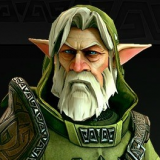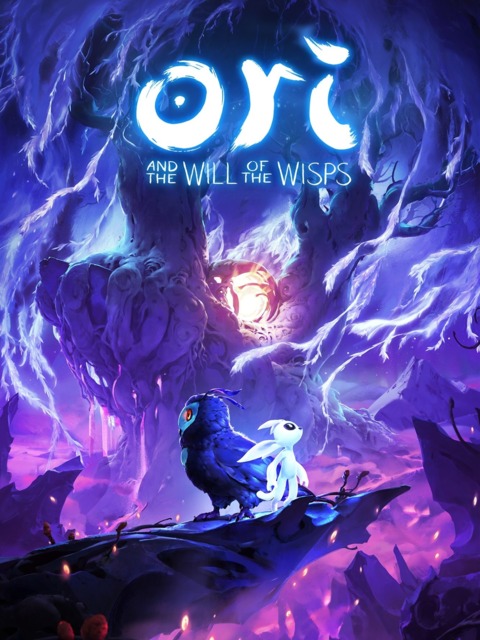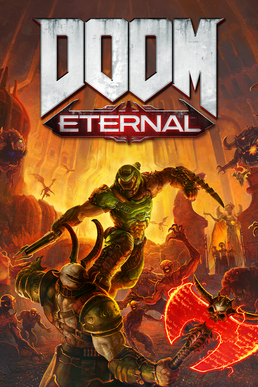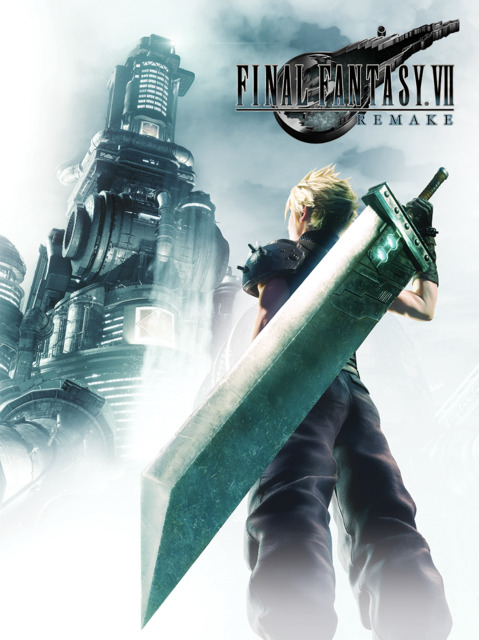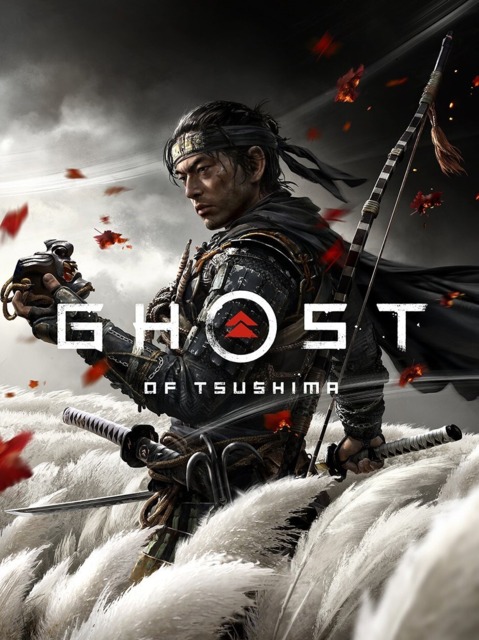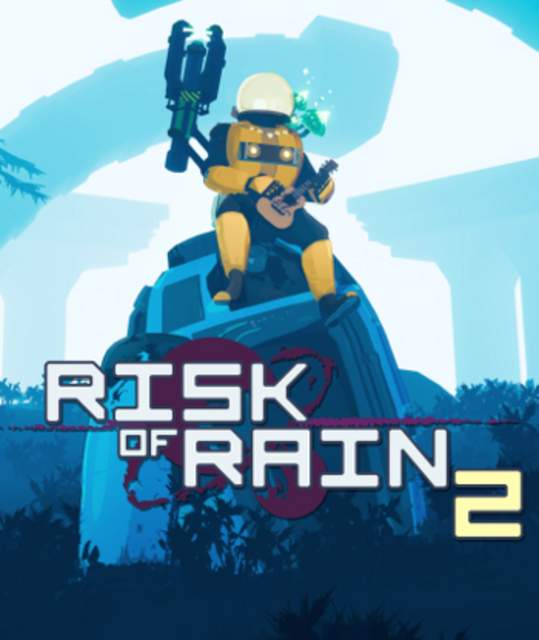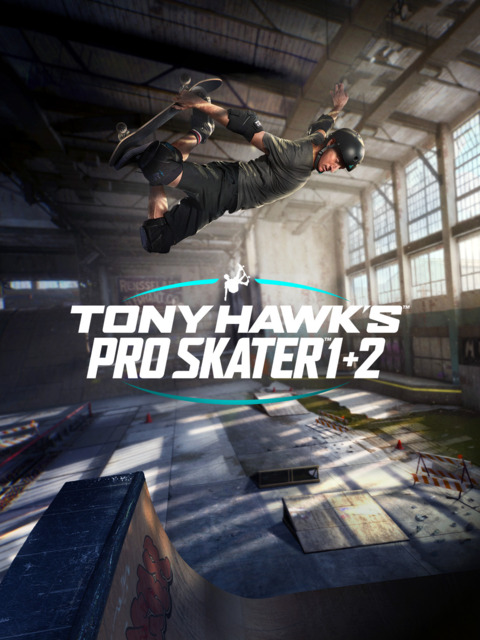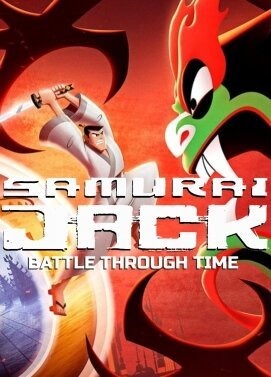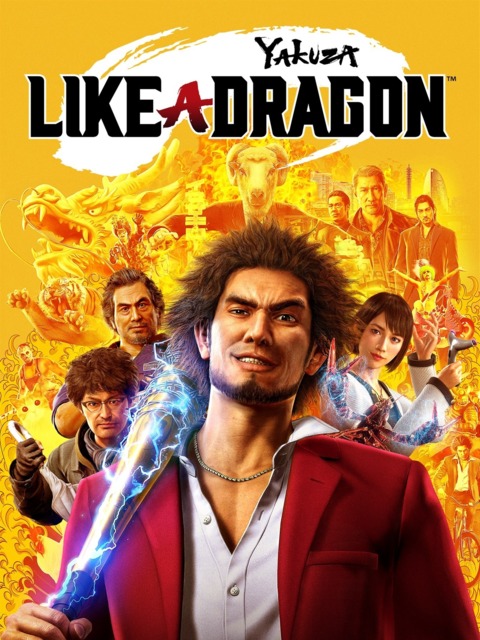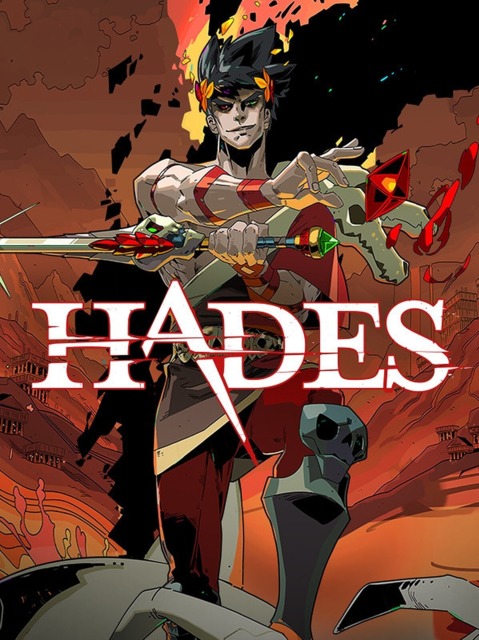Games of the Year(?) 2020
Unfortunately for you, I had a lot of extra time this year. And for a year that initially felt like no games were going to come out, I ultimately had a hard time deciding what to play and what to save for later. Here's what held my attention.
Game of the Lockdown |
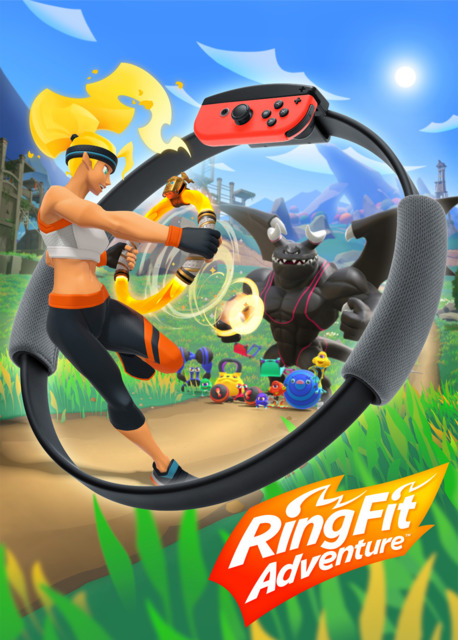
Ring Fit Adventure came out near the end of 2019, and it was difficult at the time to have played enough to truly appreciate it the way I do now, so it's on this year's list. Because it's the first truly successful gamification of exercise. Not trying to sound like an infomercial here, but it works. It really works. I went into this with a particular fitness goal in mind--never expecting to actually meet it--and not only met but exceeded that goal. This "game" does a great job of one of the hardest things about exercise: motivation that encourages consistency in order to maintain results. I had originally purchased it as an alternative to going to the gym or becoming some kind of jogger, but it became invaluable as a source of feeling active while being stuck at home all the time. If there's a category for Lockdown Game of the Year, Animal Crossing obviously wins for most people, but this still gets my vote.
It's a real shame Nintendo doesn't have VR hardware for a game like this. Because more than any actual VR game, this is the one that made me feel like all of the puzzle pieces for VR mass appeal currently exist--it's simply that no one has put them together yet. Nintendo basically solved one of the biggest VR problems (locomotion) just sitting in the corner by themselves.
But Ring Fit does suffer from trying to decide whether it's a video game or an exercise program (hint: it's an exercise program). Like, don't try to compare it to other video games; compare it to a Tour de France simulator on an exercise bike, or a urinal game like the ones in Yakuza. With that said, there's some traditional video game bullshit that sometimes feels frustratingly unbalanced, and it seems like they occasionally forget your imprecise controller inputs are real physical exercises. The feedback could be better, but it still does a great job of trying to teach proper form and knowledge you can use outside of the game. You can dial in your preferred level of difficulty/exertion, and I just wish you didn't have to beat the game twice in order to unlock a level of customization and programming that would have made the game far more accessible and approachable if available from the beginning.
Medical advice always says "just do something, anything physical for at least a few minutes at least a few times a week" to obtain the health benefits of exercise like increased life expectancy or whatever. Well, Ring Fit Adventure proved it can definitely be that "something, anything".
Games of the Year |
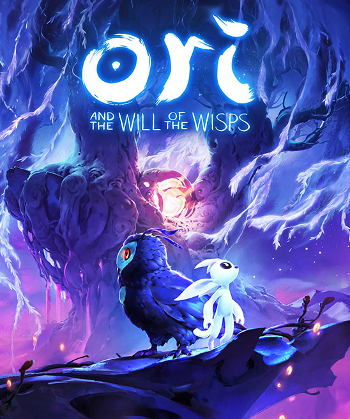
Well, look who decided to get over itself and start acting like a real Metroidvania exploration-based action-adventure platformer. The "combat" in the first game is largely what kept me from playing it more, but this one seems to have taken a page from games like Hollow Knight, and that's perfectly fine. In fact, it's more than fine. They already had the environmental and atmospheric stuff down. The combat was an extremely important missing puzzle piece, and with it, this game feels complete in a way many exploration platformers don't. These were some of the tightest controls I've ever seen, both inside and outside of combat, and there was a surprising amount of customization and freedom to choose a playstyle--even one that mimics the combat from the first game. Did I mention this game is absolutely gorgeous? Like playing a damn painting. Even if you're not a big graphics person, it was hard not to take notice and appreciate this time. I'm still waiting for Hollow Knight 2, but this was a welcome addition to the genre.

Adding detailed story and lore entries is completely unnecessary for a DOOM game, but the story is actually pretty decent when taken altogether, and I like the direction they went with it. Still totally unnecessary, but it's not like the game failed to provide a good background for all the ripping and tearing. Of course, nobody plays DOOM for the story.
If the first game (2016) was raw and relentless action with light combat puzzle elements, then Eternal was a non-stop frenetic combat puzzle where unrestrained action took a backseat. If you do like combat puzzles, this game hits those notes extremely well. But it definitely changes the tune from just simply surviving and overpowering unmitigated chaos to managing and organizing it. You're the boss of these unruly demons, and you have to restore order to the workplace through careful but quick decision-making. And violence. Does the game stumble in a couple of places? Sure, but it never drops the ball. It went for something and executed on it. Because now we might seriously have to start using the phrase "combat puzzle" to describe a subgenre of video games.
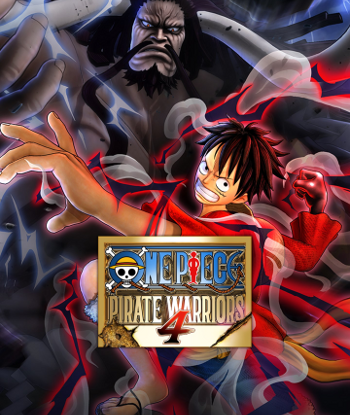
Why is a musou game one of my games of the year? Apart from the obvious fanservice? Because this is the first entry I've played that finally has jump- and dash-cancelling for your combo strings. This would signify a real gamechanger if they've realized that these are basically just character action games, and they can incorporate the same level of mechanics to allow for some real freedom in the mindless button-mashing. Imagine if the Dynasty Warriors games played like DMC or Bayonetta. We're getting there, folks. Slowly but surely. Alternatively, wait for Platinum to make a musou crossover game.
I've been down on this series for a while, but not only did I enjoy this title, I played the hell out of it. The online co-op is decent now, and they do a good job matchmaking based on what the host's priorities are ("I'm trying to S-rank", "I'm collecting items", "I just want to beat this level", etc.). And to address the elephant-island in the room: For all its focus on improving secondary gameplay systems (rather than combat), I'll say Calamity Warriors still feels like the lesser game by comparison. You can't even jump, let alone jump-cancel. Omega Force is admittedly trying to blend the musou formula more evenly with the source material these days (see: Persona 5 Scramble), but I can't go back on some of these mechanical changes. Waiting for the English release of Persona 5 Strikers, Pirate Warriors 4 was easily my favorite musou game of the year, and the only one to run at sixty frames per second.
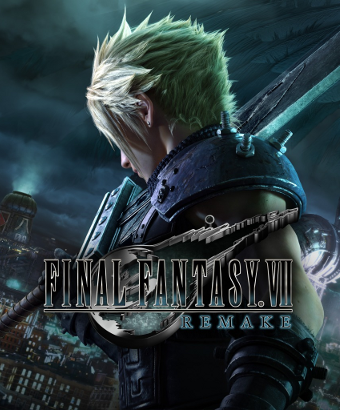
Nostalgia was a pretty big factor in my enjoyment of this game, and that was clearly by design. It certainly carried a lot of the initial enthusiasm and helped me dismiss things like the extremely anime dialogue. But whether you judge it as FF7-2 or a new Final Fantasy in its own right, it's still a damn good game.
FF7R delivers on the promise made with "Final Fantasy Versus XIII" way back when. Really, it delivers on the unfulfilled promises of Kingdom Hearts III and Final Fantasy XV in general, and it almost feels like those games were sacrifices in order for this one to succeed. The combat feels much more fluid and flashier than FFXV, but it has a lot more depth and challenge than the sleepwalk that was KH3. It has a unique party of characters (unique enough within the overall battle system, at least) that all feel fun to play as and switch between, and switching between and mastering each character quickly becomes a necessity rather than an option.
Really, it feels like this game was the answer to anyone who was disappointed in Final Fantasy XV and/or Kingdom Hearts III. But if this is the result of Square learning from those mistakes, then maybe it was worth it, because I could probably play four or five more installments of this before getting tired of it.
Back to the nostalgia: FF7 always deserved better than its original version, especially as the JRPG most people in the West cut their teeth on. I argue it's one of the better attempts at a Lovecraftian story, but so much of it was lost in translation and the storytelling was limited by the available technology at the time. Or maybe it was just too ambitious for its time. Either way, seeing it retold as originally intended is a goddamn miracle and was always something I figured Square would keep as a last resort when they completely ran out of ideas. Not saying that isn't what happened.
And the music? Don't get me started on the music. Apparently that was something else severely limited by the technology of the time.
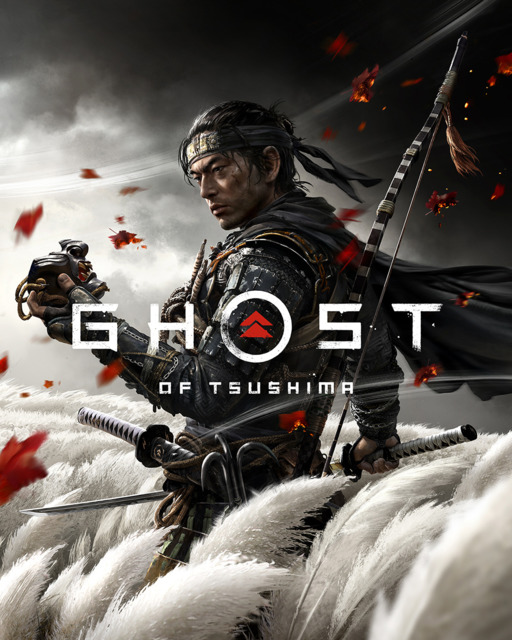
Sometimes you just want a nice, plain vanilla ice cream. Yes, there are other wild & wacky flavors, but it's easier to mess those up or to include just one ingredient that turns you off of the whole thing. But what if someone decided to make vanilla ice cream and make it the best, most refined vanilla ice cream ever? Yeah, it's still just vanilla ice cream, and you can fault it for that. But if you were in the mood for it, it would possibly be some of the most delicious ice cream you've ever had. Ghost of Tsushima is one of the most straightforward, minimalist approaches to open-world game design out there. It has the bare minimum to keep you interested, but (almost) everything it provides is done extremely well. It's definitely one of those "we've been working with the hardware long enough to perfect some techniques" kinds of games, and it goes a long way in that respect. I have never had a game make me want to use (let alone, praise) the photo mode, and I hope it never happens again.
Then, completely out of nowhere, they added cookie pieces to the ice cream with a multiplayer co-op mode that's totally enjoyable. Certainly more engaging than I thought it would be. The mission-based co-op introduces some interesting enemy mechanics, and the necessity for cooperation and synchronicity scales with the difficulty level in a way I truly appreciated. The survival mode is pretty straightforward fun as long as you have four people who are good enough at the game. But this doesn't change the flavor to "cookies & cream" or anything. It's still just really good vanilla ice cream with a few tasty cookie pieces if you like them. If it feels like I'm extending this metaphor too far, and you got your fill of it from the first island ice cream, then you truly understand this game.
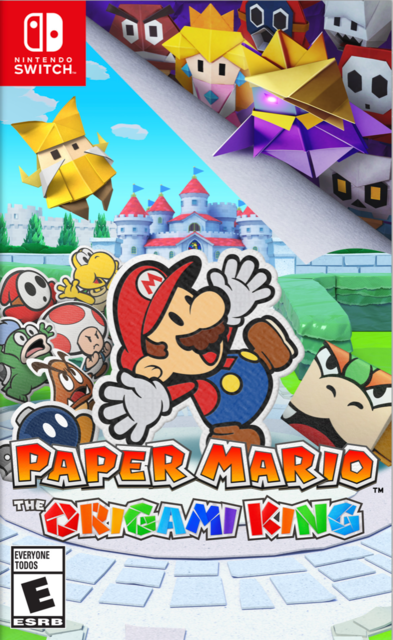
I never gave up on the Paper Mario series, but it's nice to not have to apologize or disclaim anything for once. Origami King is a solid entry, and while it's easy to look at the past few games and see the trajectory of how we got here in terms of gameplay mechanics, it's one of the best entries since Thousand Year Door, albeit completely different at this point. Still, making the battles puzzle-based provided a different type of anxiety and frustration, and it ended up being a welcome change to the formula.
All the humor and charm is still there, and the music is still good, and the game still provides a bit of a challenge. You certainly can't sleepwalk through it by default, but if you can prove you have a basic understanding of the mechanics, the game provides you with optional assistance and items that will let you sleepwalk if you really want to. I'm all for games (especially RPGs) providing difficulty accessibility options to make things quicker or easier, and Paper Mario is full of "all right, I've had enough of this" buttons and toggles. Sadly, the game does not teach you how to fold origami, but I do solve all of my problems by just tossing confetti into the air, now.

I can't think of another game that made such a significant gameplay transition while still feeling identical to the spirit of the original title. Super Mario 64 wasn't just "Super Mario World in 3D". In fact, I would say Super Mario World didn't get a true sequel until Super Mario 3D World. Risk of Rain 2 is literally just "Risk of Rain in 3D". They got it in one try, and it's great. No one had to spend a vacation on an island and run around with a water jetpack or anything.
In a nutshell, this is a better, upgraded version of Risk of Rain. If you liked Risk of Rain, you should like this. Or if you know what Risk of Rain was, then you also know what Risk of Rain 2 is, apart from some new characters and mechanics. The only significant mechanical change worth mentioning is the artifact system, which can completely change how the game works. Want to dethrone the RNG Gods and pick your items to build your loadout manually? Want your items to come from killing enemies instead of exploring the environment? Want both of these at the same time? It's fascinating they let you mess with the roguelike formula that much, but I guess it saves the trouble of making an entirely different game that uses those mechanics. Kind of a trial mode or a what-if for the different versions of the game that could have existed. Over time, I've almost exclusively opted to play with the "choose your items" mechanic turned on, and it's been a blast. It introduces some meager sense of order to the chaos, and in co-op mode it more easily allows people to adopt specific roles. But it's hard to compare that experience to an RNG purist's, or someone who opted for an entirely different set of artifacts. Who's to say which of us played the real Risk of Rain 2? Or is the real Risk of Rain 2 the friends we made along the way? (Hint: No.)
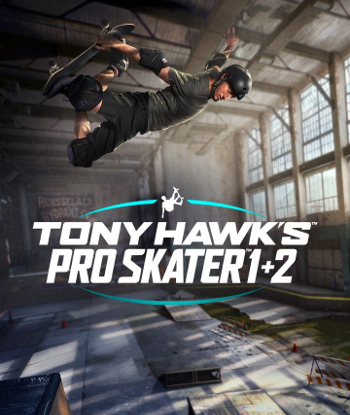
A tale of goals and boards, eternally retold. Welcome to the Warehouse Stage of history.
To its credit, THPS1+2 is exactly the game you expect it to be. They nailed it about as well as you can nail an attempt to capture the feeling of old THPS games without feeling flawed or dated. Just about every design choice turned out to be the correct decision, and virtually all of these design choices were well-executed. They used (literally) modern graphics and aesthetics to create accurate representations of the THPS 1 and 2 levels, while including a tightened version of the mechanics from the last "good" THPS games. This is without a doubt the most quintessential THPS experience out there. Again, I don't know how this game feels to someone who never played the original, but it deserves its place among this new genre of re-imagined games like FF7R and RE2 before it. For all the trouble they went through, my only regret is that they censored the music. Come on. Turn that shit up.

Samurai Jack: Battle Through Time
Two things got Samurai Jack on the list. Fanservice always works, and this game was so true to the series they animated a new canonical epilogue to the story. Secondly, this was a legitimate B-game, at a time they were thought to be extinct. Maybe it's just evolution that an independent game studio would eventually produce a B-game. It's hard to describe what I mean (and the defining characteristics of B-games seem more implicit than explicit), but everything about this game seems to land it solidly in B-game territory to me. It's not bad by any means, just the kind of game that was extremely straightforward in its design and execution and appreciated for it. There was just enough substance in its systems (combat, skill trees, upgrades, items/weapons, and collectibles) to feel like they successfully realized the design concept. It's also the first game to make me actually not hate weapon durability, and I cannot stress the impact of that enough. Seriously, just give the player something in return for breaking the weapon and we're all good. My only complaint is that it took far too long to hear the "Watch out!" musical sting.
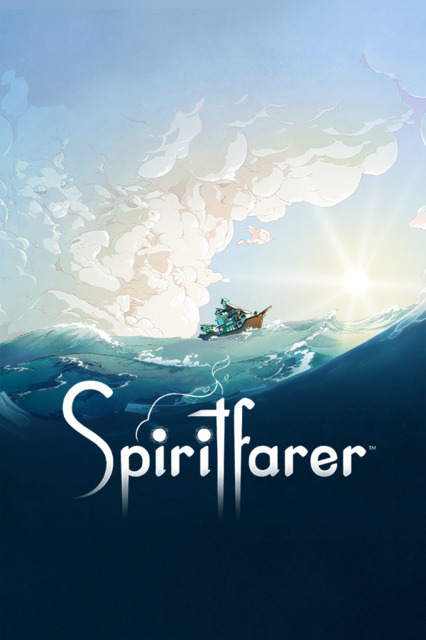
Spiritfarer is the antidote to the year 2020, and maybe life in general. It's always nice to not have to punch things or shoot things for once, but I'm surprised at how engrossing the experience was. I typically don't like these kind of management sim games, but something about playing a kinder, gentler version of a Death God feels kind of... nostalgic nice. None of the systems felt too excessive or obnoxious or demanding or punishing. It seemed like you could engage in all the activities as little or as much as you wanted, without severe consequences. But what kind of monster wouldn't cook their passengers' favorite foods and keep their spirits up on this voyage of the damned?
Don't let the cutesy art style fool you. The story is surprisingly mature (but not graphic). I knew Spiritfarer's theme was about dealing with death, and it was fine for a while. But then I did Alice's storyline. And then I understood what the game really was. Because it's not just a decent quality management/sim game; it's a stellar quality meditation on life. If you have a soul, chances are at least one of these stories will resonate with you. It doesn't get particularly deep or philosophical--leaving you to ask those questions yourself--but it's still a good contrast to almost every other game I played this year.

When they first mentioned the next Yakuza would be an RPG, I remember thinking "There's no way that could work. Whoever pitched this was probably laughed right out of the board meeting." But after playing it, I realized just how little of a stretch this actually was. It's essentially the same Yakuza game at its core, and they've mostly only changed the combat encounters from a brawler to a turn-based RPG. But it's not like they took a brawler and disfigured it into an RPG. Yakuza was always an RPG with brawler elements, not the other way around. If anything, this was the safer option they've been avoiding all along.
And you know what? It works. One of my favorite things about the Yakuza series is its ability to balance plausibility and ridiculousness. Apart from everything else about this game being very much a Yakuza game, the main combat mechanic as an RPG instead of a beat 'em up is done right proper. It's not just standing around and reading menus; it's literally an action RPG with button prompts and on-the-fly decision-making. "Do I follow up an attack to take out this big guy, or do I heal someone who may not survive the next attack from that other guy? Oh, shit! The big guy's getting up!" Not to mention having to consider status effects, elemental weakness/resistance, and positioning on the battlefield.
I haven't finished it, but having unlocked all of the systems (and boy is it saturated with optional systems like the other Yakuza games) and journeyed through most of the story, it would have to completely shit the bed in the home stretch for me to stop liking it. Even then, I don't think I could "unlike" my experience thus far. I still prefer the original brawler style of gameplay, but Like a Dragon is on my list primarily for how thoroughly it proved me wrong for doubting it.
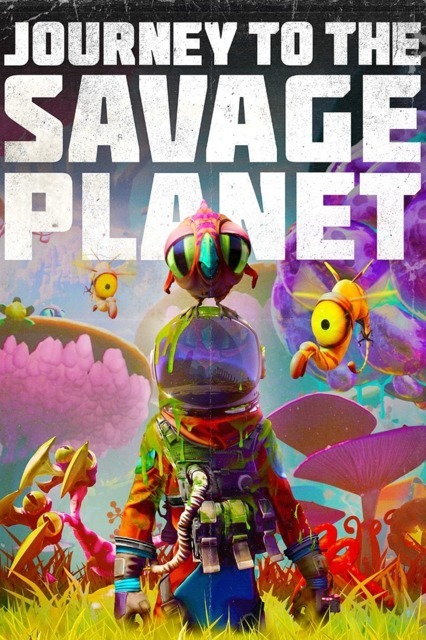
"Well, since no one else is apparently making a Metroid Prime, why don't we give it a shot?" That was my first impression, at least. This game gets surprisingly creative in what it allows for exploration mechanics, and barring a sequel, I'd like to see other games borrow from it. It's pretty short, but the "explore until you find items and upgrades that help you explore further" gameplay loop is pretty solid. It doesn't necessarily feel like Metroid Prime mechanically (and no one's going to match that FPS combat system anytime soon), but it's certainly evocative. Especially the part where you have to scan everything by turning on a specialized visor and locking on to a target until a bar fills up. But this game leans more towards the exploration than the combat, and more towards the atmosphere than the exploration.
Trying to be funny in a video game is always a risky move, but they do land some pretty good jokes often enough. Spoilers: I picked the picture of the dog when the game asked me to identify myself at the beginning, and all of the player character's voice samples were replaced with dog noises throughout the entire game. There's definitely an element of "twee" in most of the jokes that don't land, although you can turn off the quips and one-liners if you find them annoying.
It's hard not to make the Metroid Prime comparisons, but this really is a unique game of its own. It's just that not many games come this close to successfully realizing the "first-person exploration platformer" genre. This probably wasn't some kind of "Yukichan's Papa" situation with the Metroid developers, but in either case, I'd definitely like to see more from this studio.
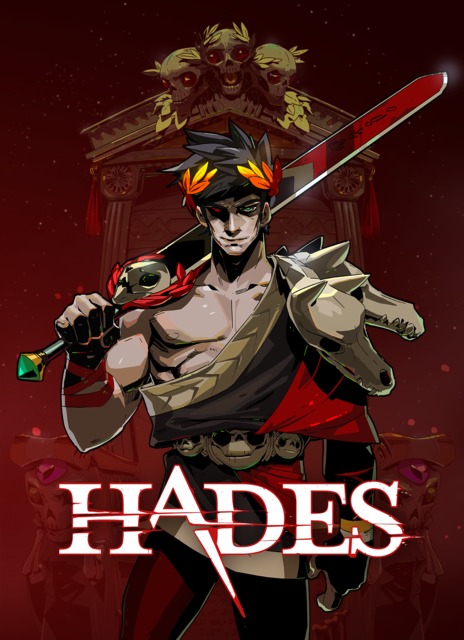
Hades is the story of Little Hades' attempt to escape Hades (the realm) while avoiding being stopped by the forces of Hades (the god). Little Hades has to out-Hades Hades if he wants out of Hades in Hades.
But it's so much more than that, both thematically and mechanically. They literally thought of everything. All of the different ways the powers interact. Hell, even the same weapon can have completely different playstyles depending on what kind of build you end up going with. Some people may try to flex and knock this game for being too "easy", but it only starts to feel that way if you let it. Because one thing Hades (the game) does incredibly well is let you customize the experience. They want you to beat the game. Several times. It's only a matter of how much assistance you have to unlock before getting solid enough footing to make your first successful escape. After that, the game does an incredible pivot, and if you want to keep playing, you're going to have to slowly get out of your comfort zone and try new weapons and new challenges. And every step out of your comfort zone is somewhere between "that wasn't as bad as I expected" and "this is my new favorite weapon/loadout/whatever". The variation stops being so much about finding different ways to survive, and more about new ways to wreck everything as quickly/efficiently/mercilessly/stylishly as possible. Unless you turn the heat up high enough to kick your ass again. (Do attempt the "Extreme" version of the Final Boss at least once. Even if you don't beat it, I think it's quite a trip the first time.)
And not to marvel too long at the fact a roguelike has a story, but it's a damn good story well told. With character development and subplots and twists and everything. Not that the source material was difficult to draw from, but these are really creative twists and expansions on some of the untold aspects of the mythology. And how clever and thoughtful is the integration of dialogue that corresponds to the variety of mechanics and choices you make about the game? It's one of the only times I've felt so compelled after beating a game to keep playing and finish every substory and complete every optional challenge. In a roguelike, no less. Exhausting all the dialogue is practically a completionist challenge itself.
Game of the Year™. Because of course the game of this year is one about a neverending cycle of being stuck at home and trying to escape, only to realize going outside was a terribly foolhardy mistake but continuously yearning for that freedom regardless because you just want things to be normal again.
Honorable Mention |
Crash Bandicoot 4: It's About Time
"Uncanny" is the only way I can describe it; I've never played something so difficult and so forgiving at the same time. It's not like it approaches frustratingly masocore levels of difficulty, but trying to do anything beyond the bare minimum of beating the level will absolutely kick your ass. It's hard, but you learn how to overcome each new obstacle they throw at you pretty quickly, and the penalties are usually minimal. But if you're a perfectionist or completionist? Good luck, because you'll be playing this game for the rest of your life to successfully beat/unlock everything.
Therein lies the uncanny valley of difficulty. Since the game is adaptive, going after the bonus objectives actually becomes easier over time. Just bash your head against the wall enough times and the game will make it easier to complete optional objectives by giving you more HP and checkpoints. And at that point, the optional challenge becomes less of a challenge and more of a test of patience. But don't get me wrong; many challenges in this game are incredibly difficult even with the generous checkpointing and HP bonuses. Which is a shame, because they added quite a few neat mechanics that would have been more enjoyable if they focused more on making the level designs fun instead of just difficult.
In a world of remasters, remakes, and nostalgia-fueled sequels released years later by completely different studios than the original developers, this game was better than it had any right to be. Subtle mechanical changes can go a long way in a beat 'em up. Wall bounces, forgiving juggles, and Special Attacks that might as well be parries really cut out some of the most frustrating issues that plague the genre. The expanded move list also does a lot to make each character feel varied without compromising any of the basic abilities, which makes it easier to find one that really fits your playstyle. There's plenty of unlockable content, but the game's replay value and longevity seems to rely mostly on your initial enjoyment of it and whether you want to keep going for higher scores and harder difficulties.
The music is absolutely killer, though.
This game is truly ambitious, but it went a little overboard with the farming mechanic. Normally, that wouldn't be a problem, but all of your stats are tied to how good your rice harvest is for that year. It constantly feels like playing two completely different games, and I would have much rather preferred a more thorough action game or a more comprehensive farming game. The concept does end up working as you get more experience with the two systems, but the learning curve is a sharp incline. You can automate the farming, but this decreases your stat increases, which means you'll spend longer grinding the same areas to harvest more rice. The combat plays very differently from what you'd expect based on games with similar aesthetics; this may look like Muramasa, but please, please, please do not be fooled. Couple that with farming (and the time and resource management required for getting a good harvest) that feels like a chore, and you've got a pretty high barrier to enjoyment.
I did enjoy it, but I can't recommend it. There was just too much crucial information that the game doesn't provide you but punishes you harshly for not knowing. And even if you go into it having read a guide, it only turns some of the problems from "frustratingly unfair" into "tolerable". Sakuna also commits some truly cardinal sins of game design (e.g., giving the enemies an insane amount of poise, recovery, and i-frames while giving the player next to none of these). It isn't until the credits roll and you see how few people worked on this game that some of its flaws appear more forgivable. On the other hand, I can now provide an excruciatingly detailed description of the necessary steps to farm a healthy field of rice using traditional Japanese techniques. And the music was pretty good.
It's no "Puyo Puyo Effect", but the multiplayer they added to this game is so good it's worth a mention of its own. The modern modes are innovative and the classic mode is a nearly exact replication of the old NES/PC version. The co-op mode is an extremely clever way to approach the obvious "everyone shares a board" idea without it becoming problematic. There's also an element of competition (rivalry, if anything) in seeing who gets bragging rights for clearing more lines and contributing more meter than the other players. The modern versus mode uses the Zone mechanic from single player to create a fresh and exciting take on the concept. And the classic mode very well could replace old-school Tetris in the official competitions, if that was their intention. Technically, Tetris Effect came out in 2018, but I'm yours forever and we're all connected in this life.
Honorable Genshin |
Welcome to my review of Genshin Impact! Here are 1,000 Faustian Bargaining Chips to help you get started! You can use those to purchase a Devil's Deal to see what kind of review and recommendation this will be. If you're lucky, it could be 5 Stars!
Dishonorable Mention |
What even is this game? Compared to the original Super Mario All-Stars, when you hear the phrase "Super Mario 3D All-Stars", this is not at all what anyone would or should expect. I can't think of another major production that failed so spectacularly to meet such reasonable expectations--expectations like including Super Mario Galaxy 2. It's not like they tried and failed; they didn't even try at all. For better or worse, putting the most minimal effort into creating this collection just made me realize one of the most significant and influential games in history might not be that objectively good upon revisiting. It was certainly a phenomenal game at the time, but it absolutely does not age well in comparison to all the games that learned from it. Hopefully this answers the question of "pure nostalgia vs. nostalgia-feeling" once and for all, and this certainly was the year to do it.
